Special Report
14 Countries the US Government Doesn't Want You to Visit
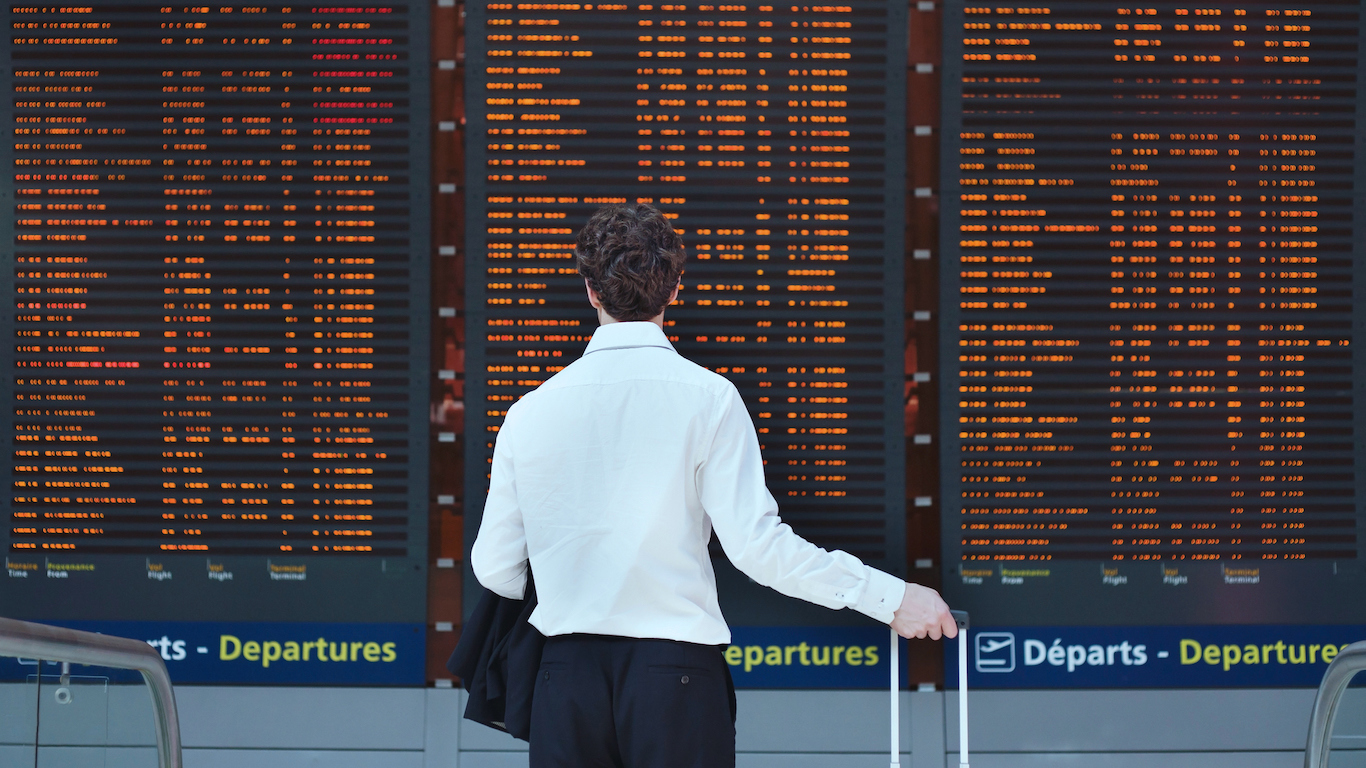
Published:
Last Updated:

The U.S. State Department issued in January a do not travel advisory for Venezuela, ordering the immediate evacuation of all non-emergency U.S. government employees and family members due to ongoing civil unrest in the South American country.
The State Department has four advisory levels for travelers: level 4 – do not travel; level 3 – reconsider travel; level 2 – exercise increased caution; and level 1 – exercise normal precautions. Today, Venezuela is one of 14 countries for which the State Department has a standing level 4 warning.
24/7 Wall St. reviewed State Department issued travel advisories to identify the 14 countries the U.S. government doesn’t want you to visit. These travel warnings were all updated by the State Department in April 2019, with the exception of North Korea, which was last updated in December 2018.
Travel warnings can be issued for many reasons and can also vary in concern. Many of the Middle Eastern and African countries on this list are unsafe because of the threat of terrorism and dangers arising from political instability, including the targeting of Westerners. Countries such as Yemen, South Sudan, and Syria have been embroiled in protracted armed conflicts that have destabilized those nations. A handful of countries on this list have been destabilized by U.S. military involvement — and been host to some of the most expensive wars in U.S. history.
With the exception of Haiti and Venezuela, all countries on this list are in Africa or Asia. Far from being popular tourist destinations, none of these are among the most visited countries in the world.
Click here to see the 14 countries the U.S. Government doesn’t want you to visit
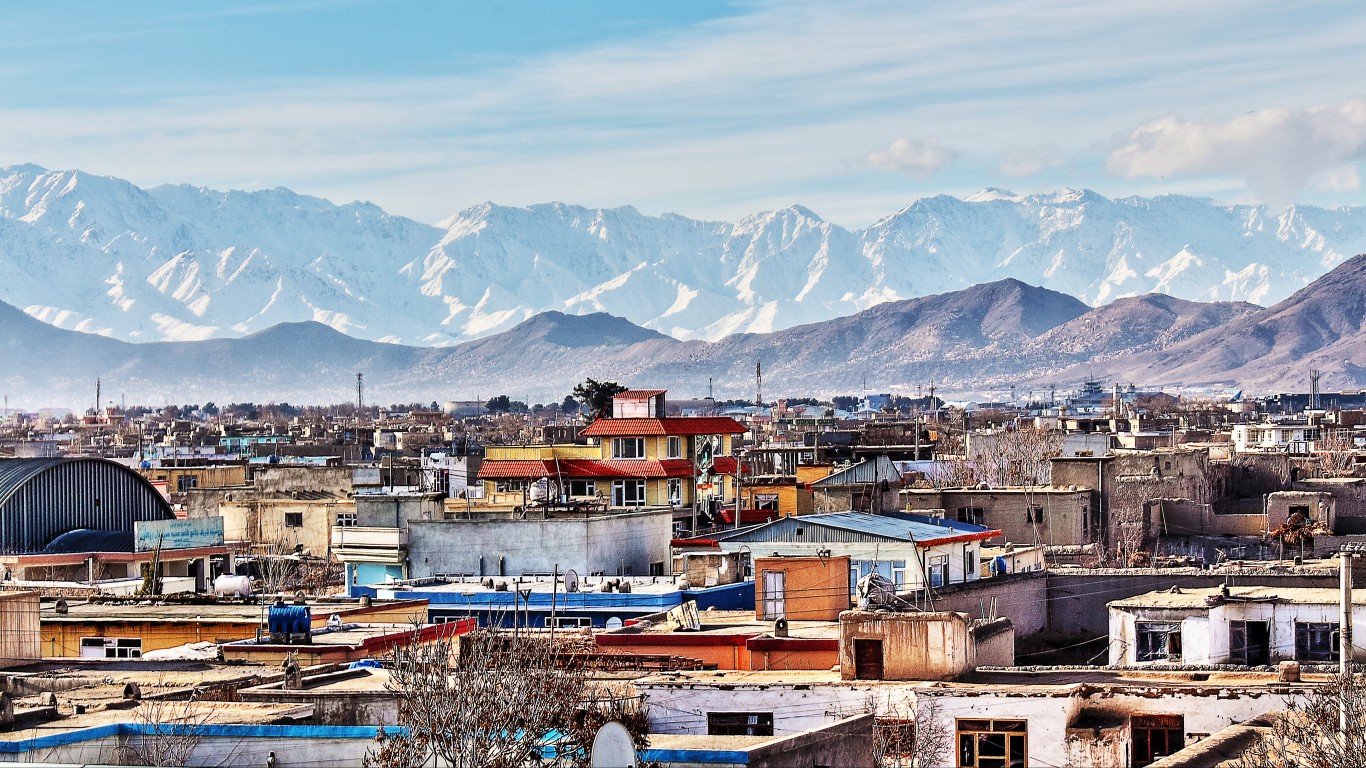
1. Afghanistan
> Last State Dept. update: 4/9/2019
> Population: 35.5 million
> GDP per capita: $550
The State Department has a standing advisory against travel to Afghanistan, citing elevated risk of crime, terrorism, civil unrest, kidnapping, and armed conflict. Terrorist threats in the country include suicide bombings and hostage taking and have targeted foreign embassies, government buildings, hospitals, tourist attractions, shopping areas, hotels, and airports.
In recent years, the Taliban, a hardline Islamic faction, have made a comeback in the country, and the security situation is worse now than it has been since the U.S. invaded the country in 2001. The U.N. estimates that over 10,000 Afgahni civilians were killed or wounded in the ongoing conflict in 2017 alone.
[in-text-ad]

2. Central African Republic
> Last State Dept. update: 4/9/2019
> Population: 4.7 million
> GDP per capita: $418
The Central African Republic has been unstable since it gained independence from France in 1960. The State Department advises Americans not to travel to CAR because of crime and civil instability. The U.S. government has raised concerns over the frequency of armed robbery, aggravated battery, and homicide incidents. The State Dept. reports that large swaths of the country are controlled by armed groups who kidnap, injure, and kill civilians. Airports, land borders, and roads in the country may close with little to no advance notice.
U.S. government personnel must get permission to travel outside the embassy grounds and may be limited in how much help they can provide U.S. citizens.
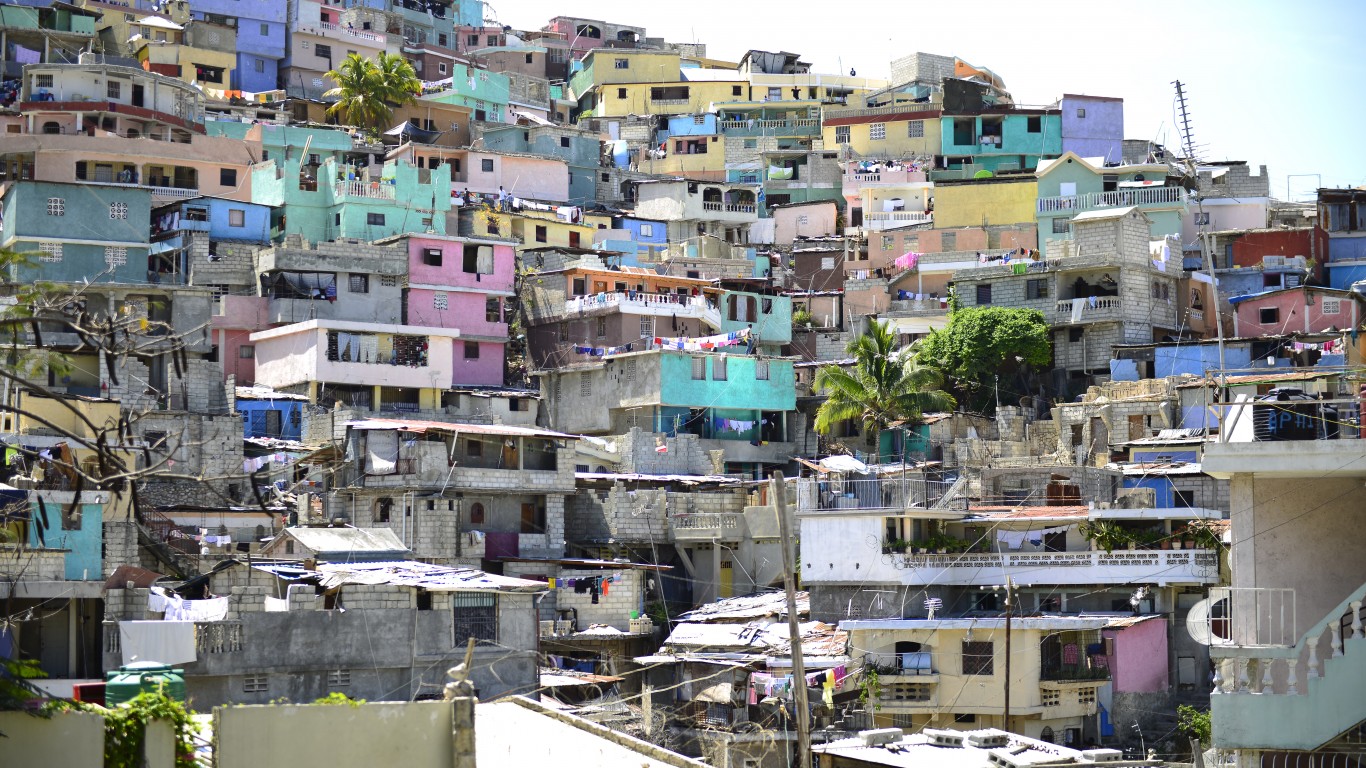
3. Haiti
> Last State Dept. update: 4/9/2019
> Population: 11.0 million
> GDP per capita: $766
Crime and civil unrest are the reasons the U.S. government is advising Americans to avoid travel to Haiti. Earlier this year, anti-government protests broke out around the city of Port-au-Prince and other parts of the country, resulting in the U.S. State Dept. withdrawing all non-emergency personnel from the country. Demonstrations, which often include tire burning and road blocks, have occurred frequently and without warning since.
Travelers are often specifically targeted for robbery shortly after leaving the Port-au-Prince international airport, and the U.S. embassy requires its employees to use official transportation to and from the airport. Personnel are discouraged from going to establishments after dark that do not have secure parking, or from going to banks and using ATMs, driving outside of Port-au-Prince at night, or using public transportation or taxis.
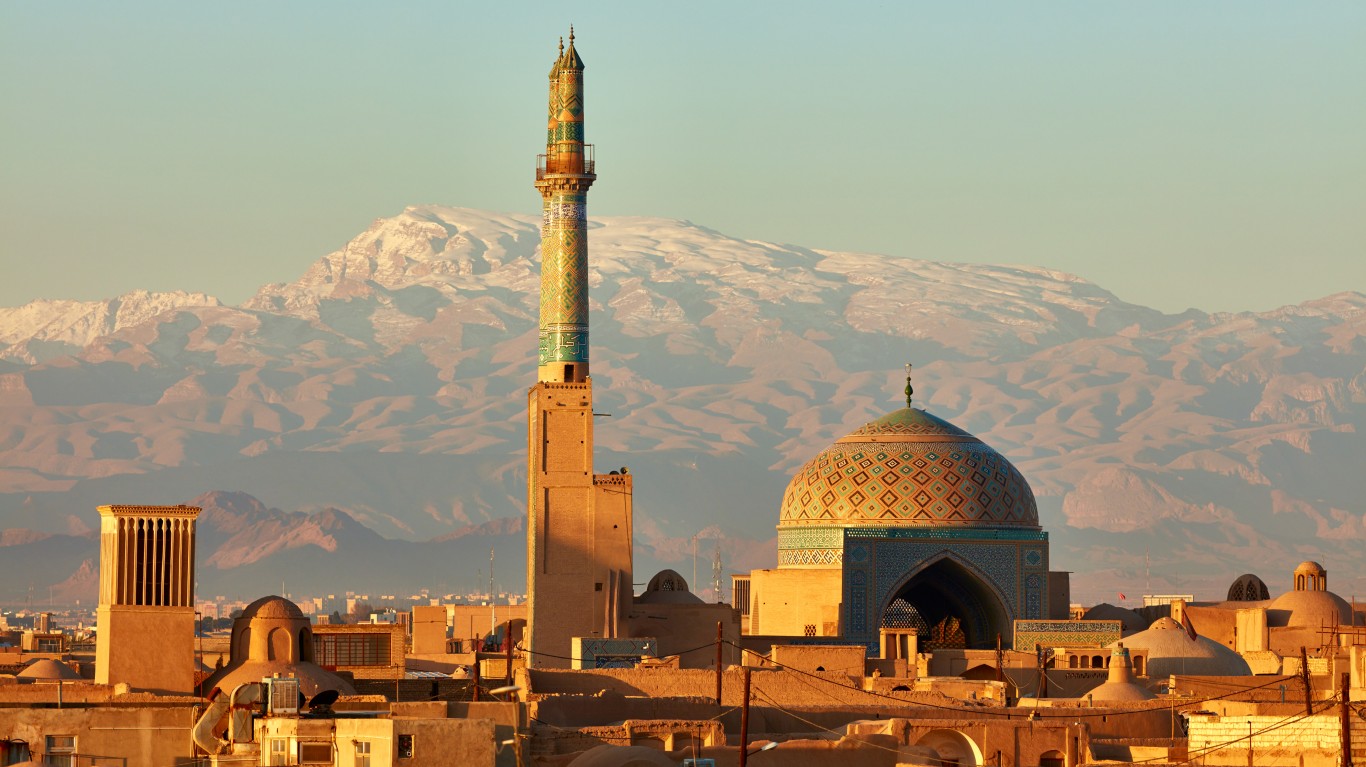
4. Iran
> Last State Dept. update: 4/9/2019
> Population: 81.2 million
> GDP per capita: $5,594
Americans, particularly those with Iranian dual citizenship, are at very high risk of kidnapping, arrest, and detention in Iran. Iranian authorities have detained students, academics, journalists, and business travelers on a range of unjust charges, including espionage.
Tensions between the United States and Iran have continued to rise since the United States reinstated sanctions in 2018. These sanctions have been felt throughout Iran’s economy. The U.S. government has not had diplomatic relations with Iran since 1979 and is unable to provide emergency services to American citizens travelling there. Switzerland serves as an intermediary for U.S. citizens in Iran and provides emergency services.
[in-text-ad-2]
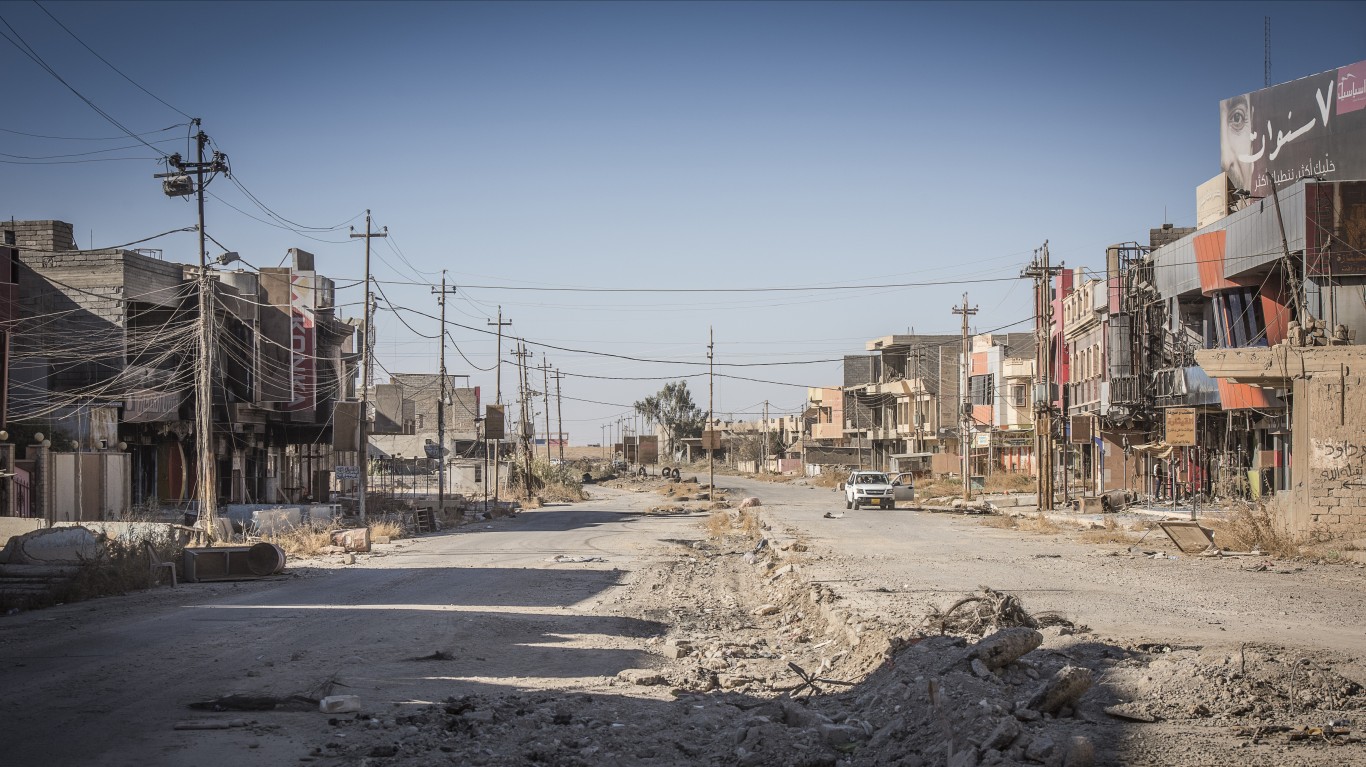
5. Iraq
> Last State Dept. update: 4/9/2019
> Population: 38.3 million
> GDP per capita: $5,018
The State Department warns Americans not to travel to Iraq over concerns of terrorism and armed conflict. Terrorist groups and militias continue to operate in the country, over 16 years after the United States invaded Iraq. Terrorist groups and sectarian militias often target American citizens as well as Western companies. Many of the attacks are carried out using improvised explosive devices, or IEDs.
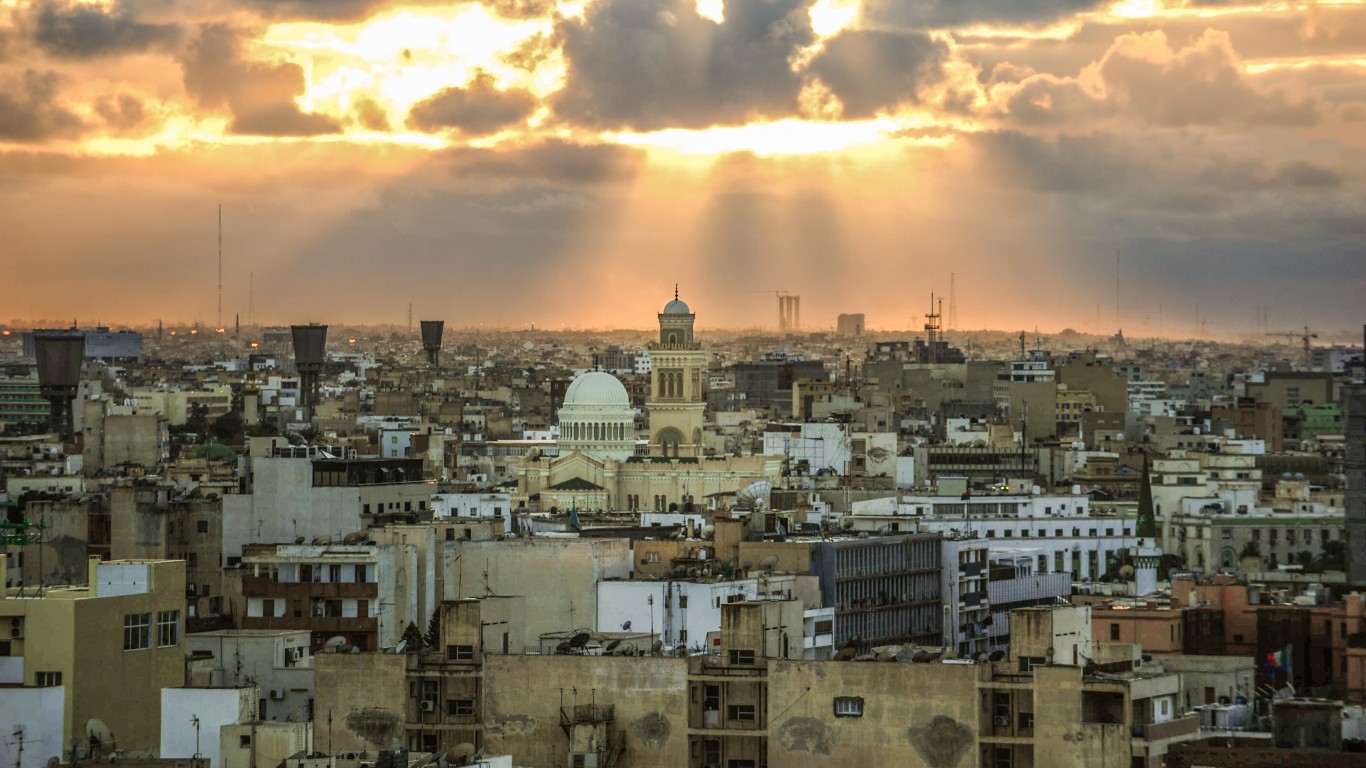
6. Libya
> Last State Dept. update: 4/9/2019
> Population: 6.4 million
> GDP per capita: $5,978
The State Department has a standing “do not travel” advisory on Libya, which has been unstable since dictator Muammar Gaddafi was toppled in 2011. The Libyan government’s ability to control crime is limited, and militia groups sometimes detain travelers for no reason. Extremist groups are known to target Americans. According to the State Department, some international and national airports are closed, and flights out of airports that are open are irregular and may be canceled without warning.
[in-text-ad]
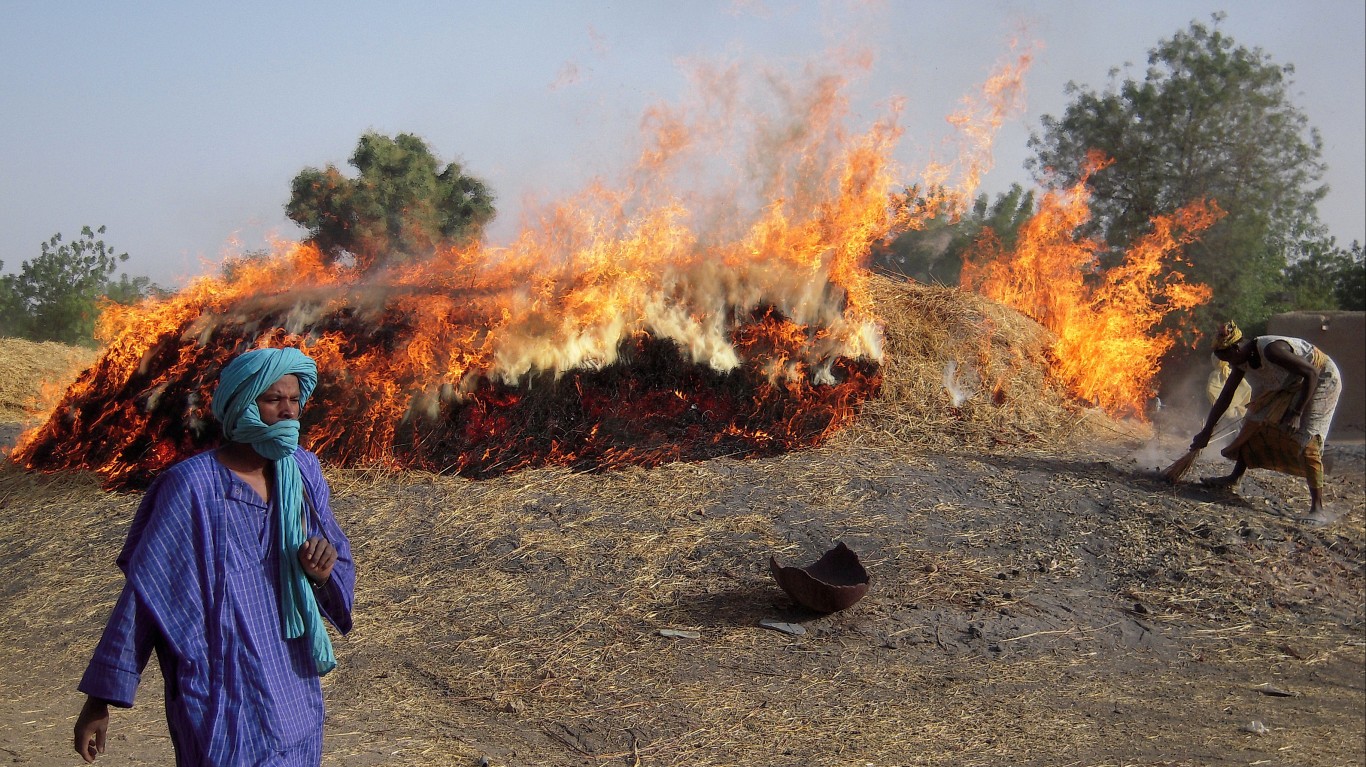
7. Mali
> Last State Dept. update: 4/9/2019
> Population: 18.5 million
> GDP per capita: $827
The levels of crime and terrorism in Mali have propmpted the U.S. government to issue a “do not travel” advisory to the West African nation. Terrorist groups operating in the landlocked nation have been known to target foreigners at nightclubs, hotels, and restaurants. In November 2015, a jihadi group attacked a hotel in Mali’s capital, killing 20 people, including one American. Violent crime, such as kidnapping and armed robbery, is common in northern and central Mali, and the U.S. government says it would be unable to provide assistance to Americans who go to those regions.

8. North Korea
> Last State Dept. update: 12/19/2018
> Population: 25.5 million
> GDP per capita: N/A
Relations between North Korea and South Korea, as well as North Korea and the United States, appeared to be improving in 2018. In January, the North and South held talks for the first time in two years, and North Korea sent a team to the Winter Olympics hosted by its neighbor to the south as a sign of good will. President Donald Trump met with North Korean leader Kim Jong-Un in June, and nuclear de-escalation by the isolated dictatorship appeared to be underway. Then follow-up talks between the United States and North Korea abruptly fell apart after Kim ruled out disarmament. In May, the nation launched its first missile test in a year and a half.
The U.S. state department forbids Americans to travel to North Korea without special exemption, noting that American citizens who travel there are at “serious risk of arrest and long-term detention.”
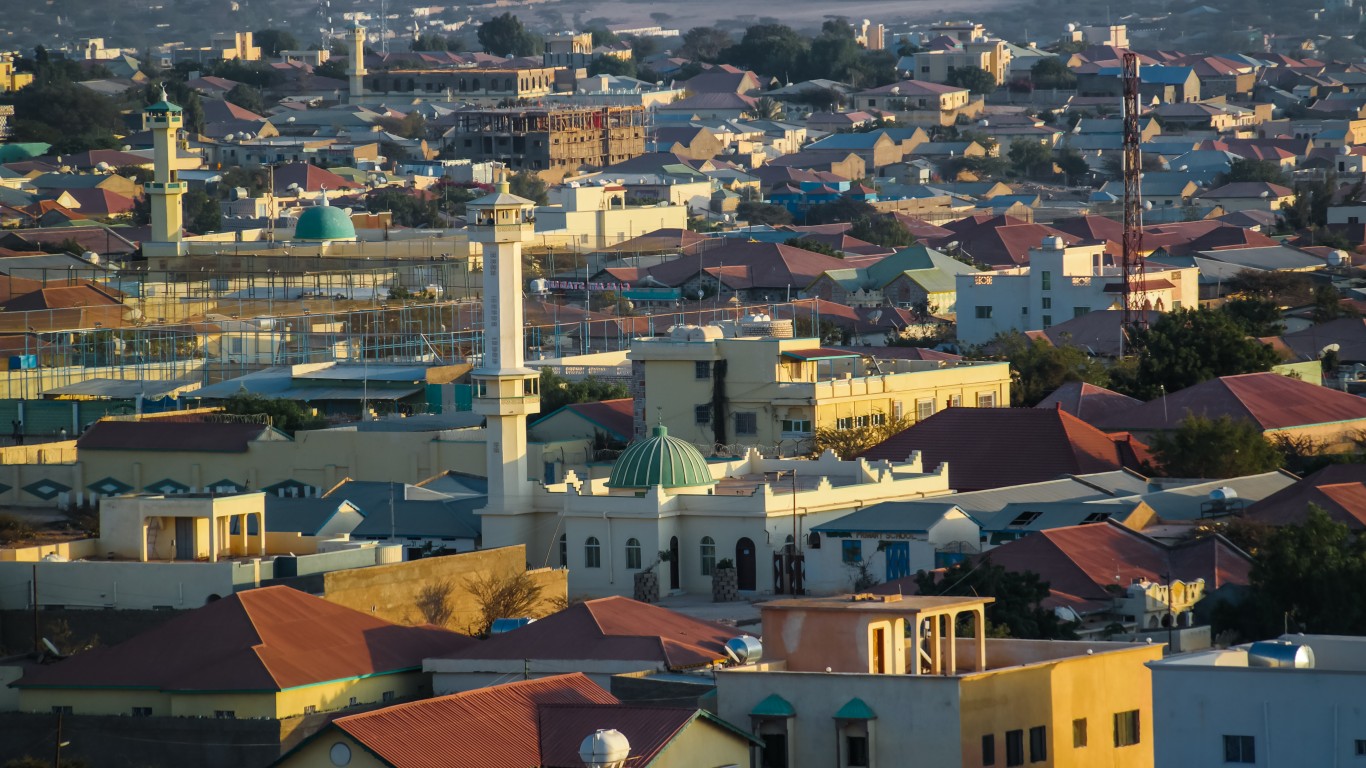
9. Somalia
> Last State Dept. update: 4/9/2019
> Population: 14.7 million
> GDP per capita: $478
Somalia, an African nation located on the Indian Ocean, has been a haven for terrorism. At least six people were killed after a suicide bomber detonated a vehicle containing explosives in September of 2018 in the Somali capital of Mogadishu. Kidnapping and murder also are widespread in Somalia. Illegal roadblocks are a fact of life in the country. Pirates also are active in the international waters near Somalia.
[in-text-ad-2]
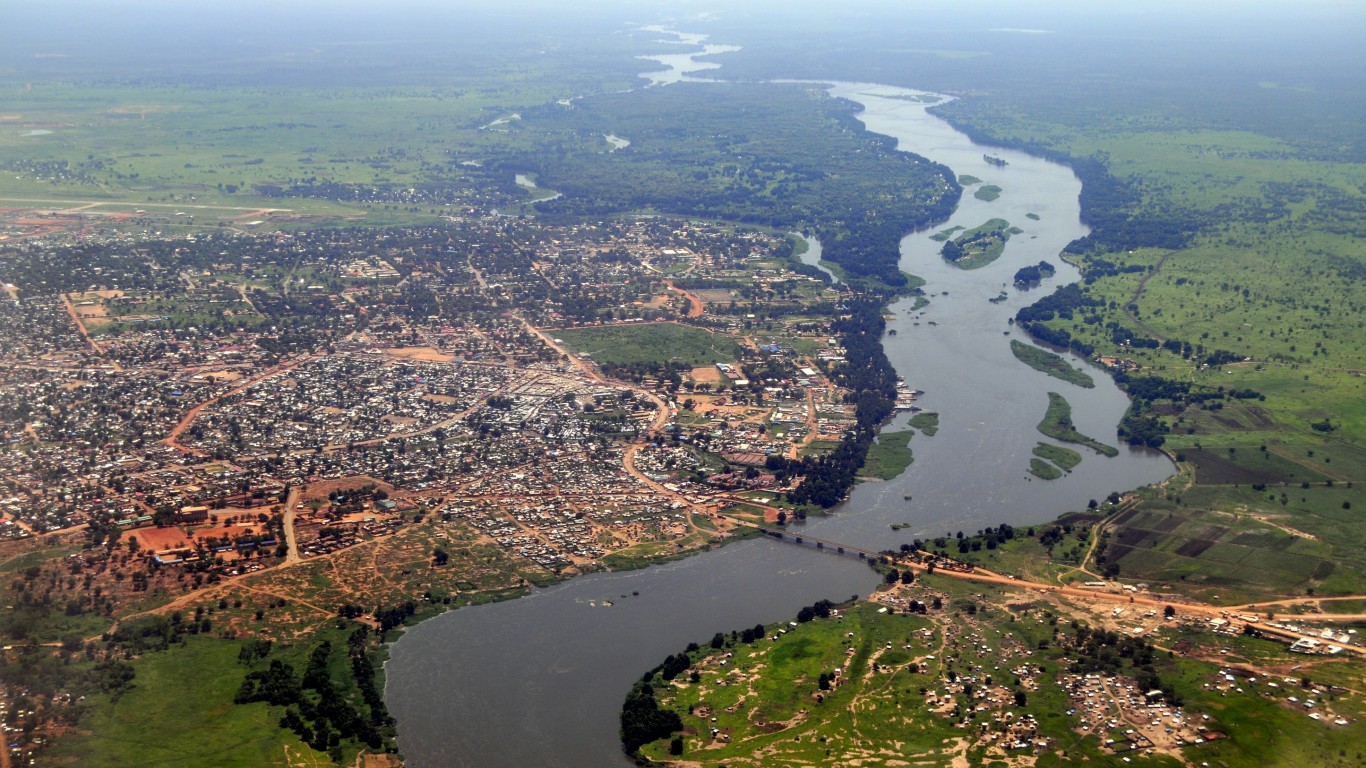
10. South Sudan
> Last State Dept. update: 4/9/2019
> Population: 12.6 million
> GDP per capita: N/A
South Sudan gained independence in 2011. But peace has been elusive for the fledgling nation, which descended into conflict two years after its creation. About 4 million people have been displaced by the conflict. The ongoing ordeal is the reason the U.S. government has advised Americans not to travel to South Sudan. U.S. government employees are under a strict curfew and can only travel in armored vehicles in the capital Juba. Because of frequent crime, embassy personnel are discouraged from walking anywhere.
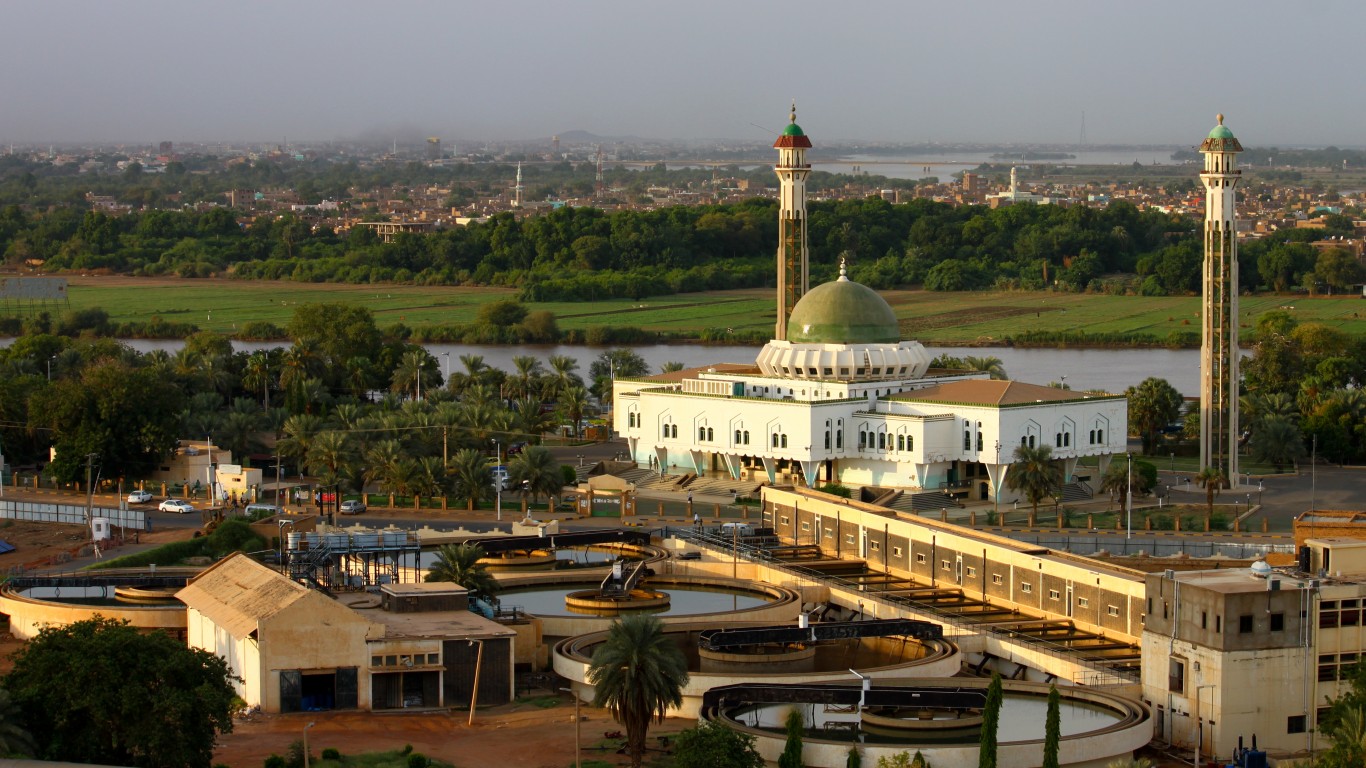
11. Sudan
> Last State Dept. update: 4/11/2019
> Population: 40.5 million
> GDP per capita: $2,899
American travelers are advised against traveling to Sudan because of terrorism, crime, armed conflict, and civil unrest. Terrorists in the country may specifically target Westerners through shootings, suicide bombings, and kidnappings. Demonstrations, including many that are explicitly anti-Western, have occurred regularly in 2019.
Heightened security concerns have led to greater autonomy for Sudanese security forces and more frequent detentions of foreigners. The Sudanese government does not recognize dual citizenship and considers those with dual citizenship to be Sudanese citizens only.
[in-text-ad]

12. Syria
> Last State Dept. update: 4/9/2019
> Population: 18.3 million
> GDP per capita: N/A
According to the State Department, “no part of Syria is safe from violence. Kidnappings, the use of chemical warfare, shelling, and aerial bombardment pose significant risk of death or serious injury.” Since the civil war began in Syria eight years ago, more than 400,000 people have been killed, according to the UN Envoy to Syria.
The U.S. embassy in Damascus suspended operations in February 2012, and the United States does not have diplomatic relations with Syria.
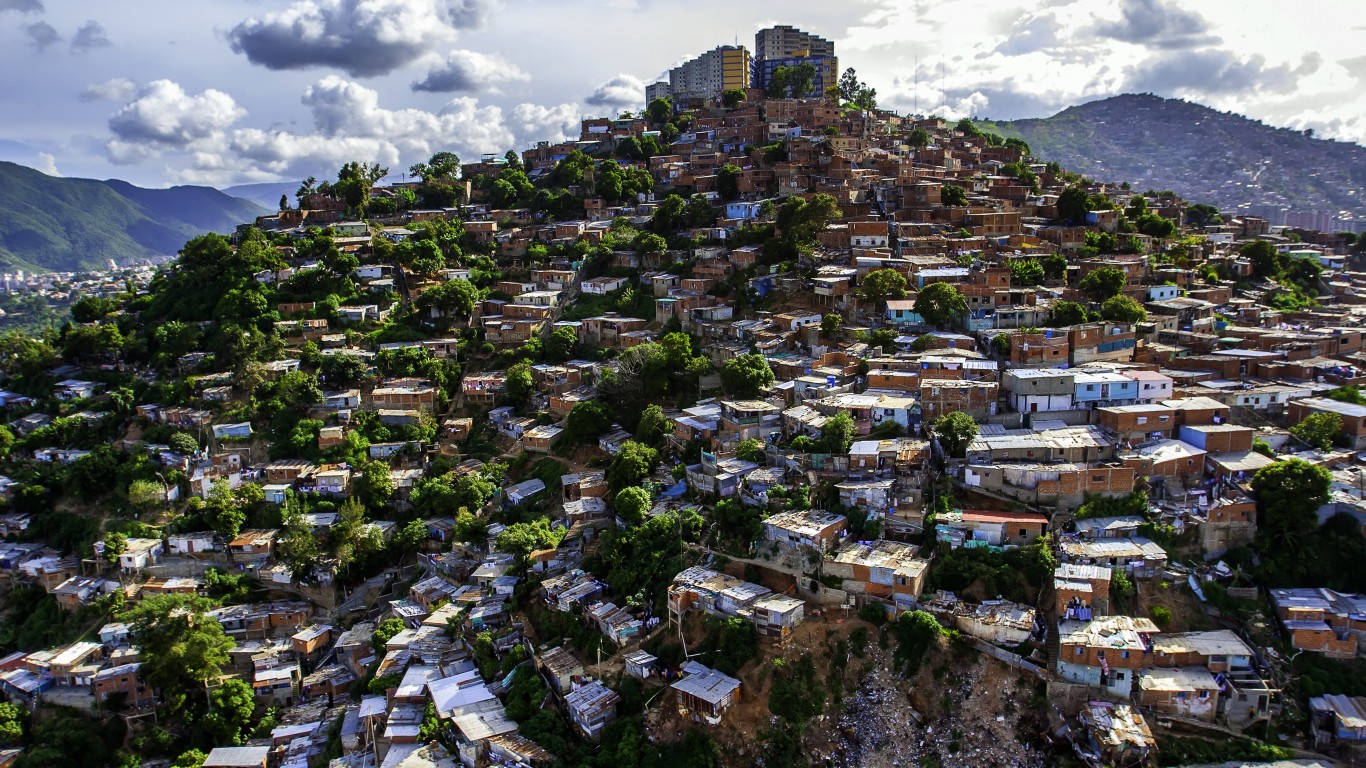
13. Venezuela
> Last State Dept. update: 4/9/2019
> Population: 32.0 million
> GDP per capita: N/A
In January, the U.S. State Department raised Venezuela’s travel advisory level from 3 (reconsider travel) to 4 (do not travel), citing increased risks for U.S. citizens traveling in the South American country — U.S. citizens, the advisory notes, might be detained for long periods. The advisory was issued before a failed coup attempt in late April destabilized the region even further. Now, U.S.-backed opposition leader Juan Guaidó is reportedly considering asking the U.S. government for military support in ousting long-time leader Nicolás Maduro.
According to the State Department, there are serious shortages of food, electricity, water, medicine, and medical supplies throughout the country.
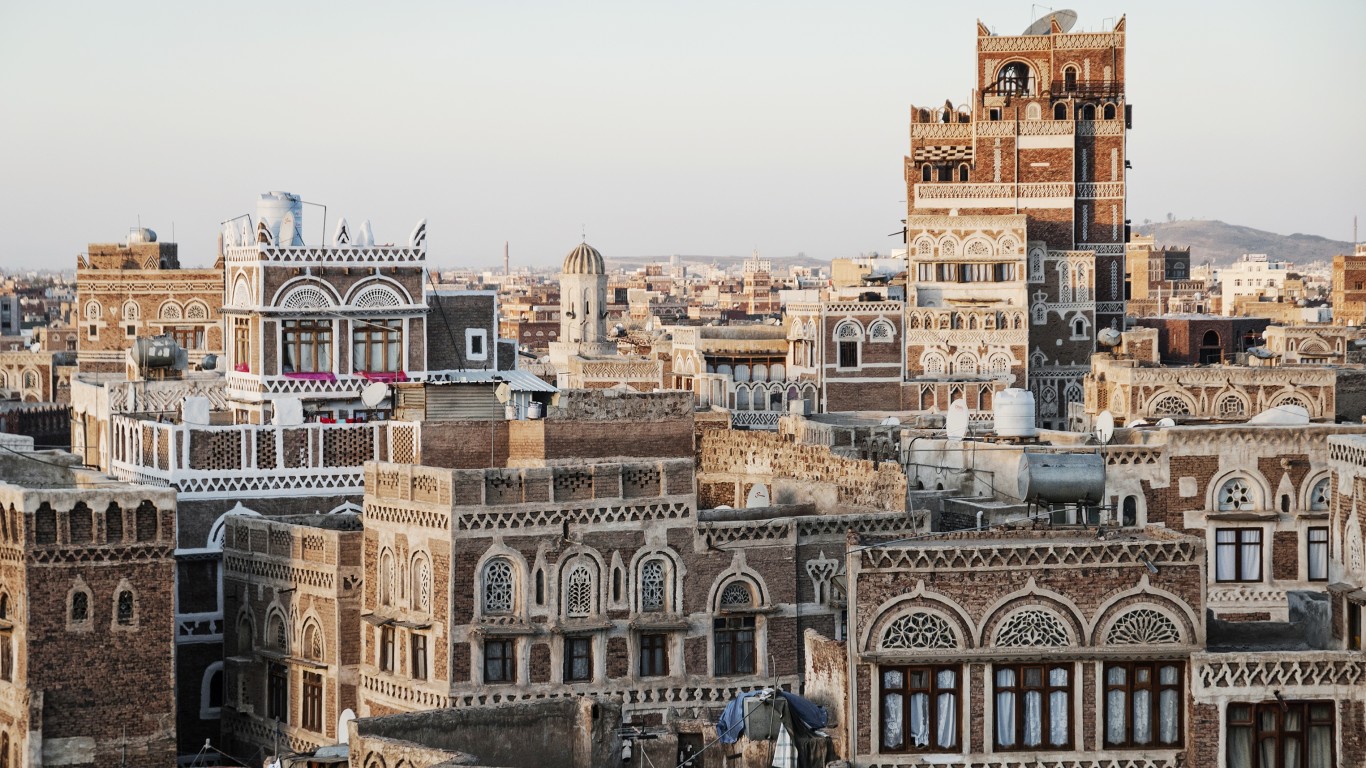
14. Yemen
> Last State Dept. update: 4/9/2019
> Population: 28.3 million
> GDP per capita: $1,107
The U.S. government strongly urges Americans not to go to Yemen, saying “no part of Yemen is immune to violence.” Yemen descended into civil war in 2015, and the nation on the Arabian peninsula has been torn apart by the conflict. The war has led to the destruction of housing, medical facilities, schools, and utilities. The country is also struggling with the world’s worst cholera outbreak with more than 1 million possible cases of the illness.
Thank you for reading! Have some feedback for us?
Contact the 24/7 Wall St. editorial team.